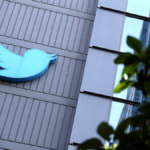
Twitter faces changes – and exits – by the minute in the hands of new owner Elon Musk, who purchased the social media site for $44 billion.
It’s not the first time the bird app has switched features up, though. Twitter has seen its share of comings and goings before Musk muddied the waters further. It attempted, for instance, to popularize a story feature similar to that of Snapchat and Instagram through users’ profile icons. Those were called Fleets. Then, Twitter adopted Instagram’s close friends story feature, repackaging the function as the Twitter Circle, where Tweets can be set for viewing only by the user’s selected group of “closest” follower friends.
And Twitter has faced competition before from various platforms sparked specifically by political leanings — such as former president Donald Trump’s Truth Social and Jason Miller’s Gettr, the latter of which was billed as “The Marketplace of Ideas.” Kanye West made a bid to purchase Parler, a more conservative-minded outlet owned by Candace Owens’ husband George Farmer. Rumble, backed by Peter Thiel as well as “Hillbilly Elegy” author and senator J.D. Vance, has surged in popularity amongst those searching for a more conservative version of YouTube.
So with the options out there and mounting reasons to ditch your Twitter account, here are alternatives to Twitter you can use if you’re looking for another social media platform.
Clubhouse (4.8/5 Apple Store, 4.5/5 Google Play Store)
For those who will miss their Twitter Spaces, Clubhouse mimics the format that Twitter used for the audio conferences. The space function allows profiles to come together to speak on different subjects, denoting who is speaking by highlighting their profile icon. The live, open forum podcast format allows for collision conversations that may not happen on a more structured, text-only platform.
Discord (4.7/5 Apple Store, 4.2/5 Google Play Store)
Although Discord does not have a Twitter-like look nor a single server, the platform might fulfill users’ desire for professional and social circles that foster conversation while keeping up to date with the latest news. Similar to Mastodon and Facebook groups, Discord holds different servers where groups create their own rules and culture, so the app is inherently private, unlike Twitter. However, you can search for servers based on your interests here.
Tumblr (4.1/5 Apple Store, 4.3/5 Google Play Store)
Tumblr traces trending topics just like Twitter does. There is also a staff picks section. Most of the posts involve visual content more than words, but pictures are worth a thousand words. Hashtags permeate the caption-like feature of the posts, and you can leave notes, which are kind of like comments, on posts. There are also reposting, liking and sharing features.
Mastodon (4.5/5 Apple Store, 2.6/5 Google Play Store)
If you’ve been in the weeds of Musk’s Twitter takeover, you’ve likely heard of Mastodon, a decentralized social media that has experienced massive growth since the $44 billion Twitter acquisition was finalized. While Mastodon has a Twitter-like look to it — and users post toots in place of tweets — all the content isn’t housed on a single server like Twitter. Instead, Mastodon’s platform links together a slew of servers — which can each be considered social networks in their own right — that are governed by different groups or users.
Though the set-up has created headaches for many new users who have struggled to find a server with people who share their interests, Mastodon encourages users to share the information from the server they join with followers who have similar interests.
Facebook (2.2/5 Apple Store, 3.2/5 Google Play Store)
Facebook has always served as an outlet for opinions far and wide. The posts combine photo and visual components with wide caption fields. Users can dedicate entire posts to photo albums. After purchasing Instagram so that the two social media platforms now fall under the same parent company, Meta, Facebook also has the story function that Instagram cribbed from the Snapchat app. Other helpful features include status updates, pages, Facebook groups and the beloved Marketplace, which competes with Craigslist for secondhand retail.
Bluesky (not yet launched)
Though Bluesky has not been formally launched, all eyes are on the social media alternative created by Twitter co-founder Jack Dorsey. The platform is anticipated to be decentralized, similar to Mastodon, and distinguishes itself from Twitter by claiming user data will be controlled by users and free of governmental or corporate influence.
In October, the company announced that it had 30,000 signups for the app, tweeting, “thanks for the overwhelming interest, we’ll do our best to get you in soon.”
Cohost (not yet launched)
Cohost advertises “posting, but better.” The new social media platform aims to target people who like sharing things on the internet – but without all the side snags of blaring ads that pop up right where you’re about to click or the omnipresent algorithmic force behind the curation of the content each user sees. The yet-to-be launched app acknowledges “borrowing liberally” from other sites with the idea that no platform has perfected the recipe yet. Other core values include sharing the same space with both like and unlike-minded individuals, and acknowledging the restrictions metrics pose on creative content cultivation. Cohost also seems to cater to individuals as cogs in their larger machine, though they denounce the toxic focus on “getting engagement” as a driver of traffic.

















